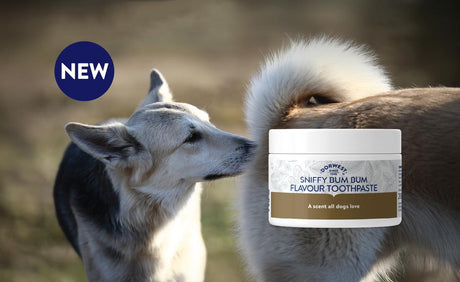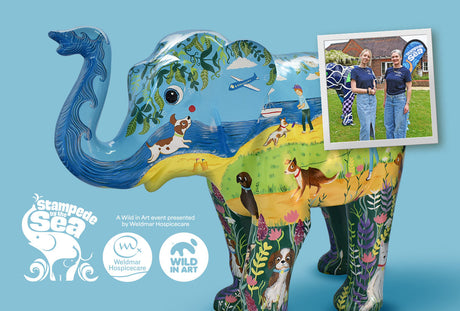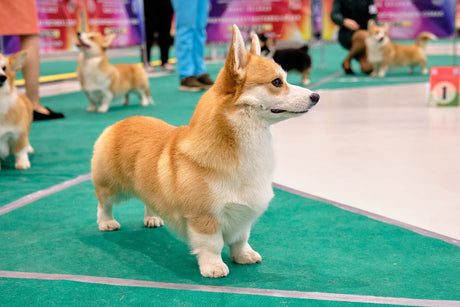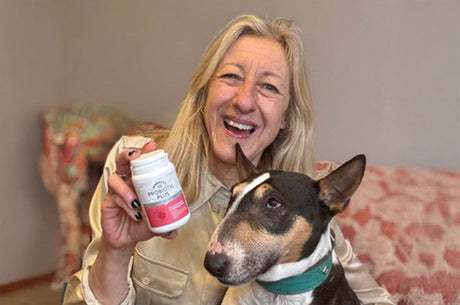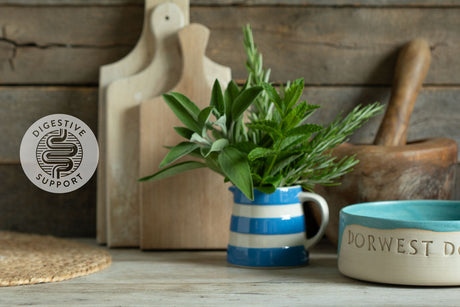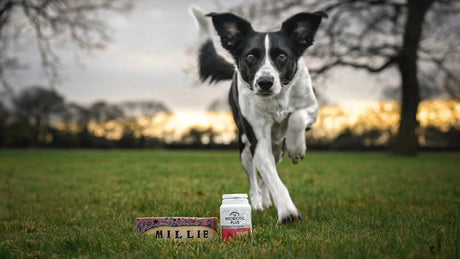The golden years of dog ownership are by far the most relaxing in many ways. Gone are the days of crazy puppy behaviour, although your oldie might have a few springy steps from time to time. Still enjoying their daily lives, our older dogs seem to have made their peace with the vagaries of human life.
Often, we do not notice that our beloved pet is ageing, as we see them every day, so changes may be imperceptible. A few grey hairs creep in around their eyes and muzzle, perhaps. They are still as dependable and friendly as ever. However, not all symptoms of old age are physical. Just like humans, our dogs’ brains age too. It might be that they are moving around a little slower, but cognitive ageing will affect a wide range of functions. This is similar to human signs of senility but is known as ‘Canine Cognitive Dysfunction’ (CCD).
This can include symptoms such as dogs suddenly toileting indoors when previously they were housetrained. They might simply toilet right in front of you in the house, as if they have forgotten where they are or haven’t realised that they are not outdoors. This is not the same as a problem with bladder function, so do ask your Vet to check for any infections. With CCD, it is as if the dog simply has lost the learning they used to have. This can be deceptive too, as it can come and go. One day they may remember things without problems, and others they may not seem to know or even care where they are.
Another classic symptom is if your dog becomes restless and starts barking at night. This barking isn’t linked to them wanting to do something such as go to the toilet. It is almost as if they have got their timings reversed and daytime routines become nighttime ones, and vice versa.
It is often confused with separation distress, as your elderly dog may panic easily when left alone, both at times during the day or at night, even though you might be in the next room!
They may sleep a lot more, and may not recognise people or enjoy their usual walks as much, or may even refuse to go out. All of these symptoms can be linked to other issues but when experienced at once, and even after vet checks they do not seem to fade, it is likely that your dog has some form of canine dementia.
Whilst these symptoms can be hard to bear, all is not lost. Ask your Vet to refer you to an ABTC-Registered Clinical Animal Behaviourist who can help you and your dog to relax a little more at this most special of life stages.
Watching your dog grow old can sometimes feel sad, but this is a time to really thank your beautiful pet for the years of fun and companionship. Change his routine very gradually to include more naps, cuddles if he wants them, and regular health checks to keep him as well as he can be. After all, they have given us so much!
By Karen Wild, Certificated Clinical Animal Behaviourist (CCAB)
Dorwest says: Don't forget Scullcap & Valerian Tablets are useful for reducing anxiety and relaxing your dog, they are a herbal supplement with over 50 years of usage



